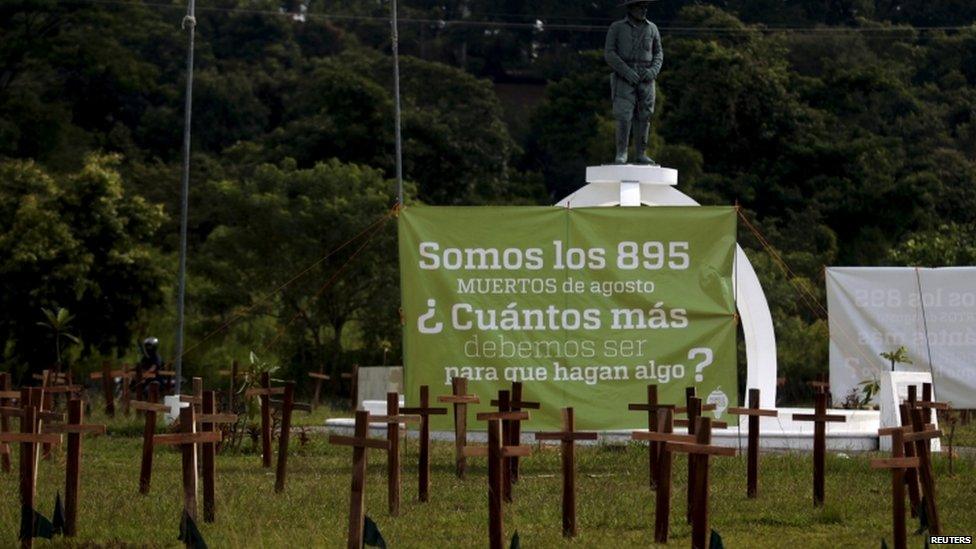El Salvador violence up to civil war-era level
- Published

Members of a group called "300" called the protest against violence in El Salvador
Violence involving street gangs in El Salvador left 907 people dead last month, a level of bloodshed unseen since the civil war of the 1980s, police say.
They say the high numbers are due to an increase in clashes between street gangs and the security forces and rival gangs fighting each other.
El Salvador is believed to have more then 70,000 gang members.
The government has been tackling them head on.
National Police chief Mauricio Ramirez said 47 police officers and 16 were soldiers had been killed - many of them attacked while off duty.
President Salvador Sanchez Ceren has brought in 7,000 army troops to help the police carry out patrols but he has been criticised for failing to reduce the violence.
Through to the end of August, there wre 4,232 murders compared with 2,533 in the same period last year.
In July, gang members paralysed public transport when they ordered drivers to go on strike. They torched buses and killed at least seven drivers who did not comply.
Gang leaders have been calling for a reinstatement of a truce between the two main gangs, the Mara Savatrucha and the Barrio 18 which was brokered in 2012 and which led initially to a 40% drop in the murder rate.
But as the truce crumbled, the number of murders rose again.
President Sanchez Ceren has refused to get involved in negotiating a fresh truce, saying this would lay the government open to excessive gang demands.
His policy has been to deploy more police to areas with a heavy gang presence and to combat all crimes.
According to a 2012 UN report, Central America was one of the most violent regions in the world with Honduras the most violent country (with 91.4 homicides per 100,000 people) along with high rates in El Salvador, Guatemala and Belize.
- Published12 August 2015
- Published3 August 2015
- Published23 August 2015